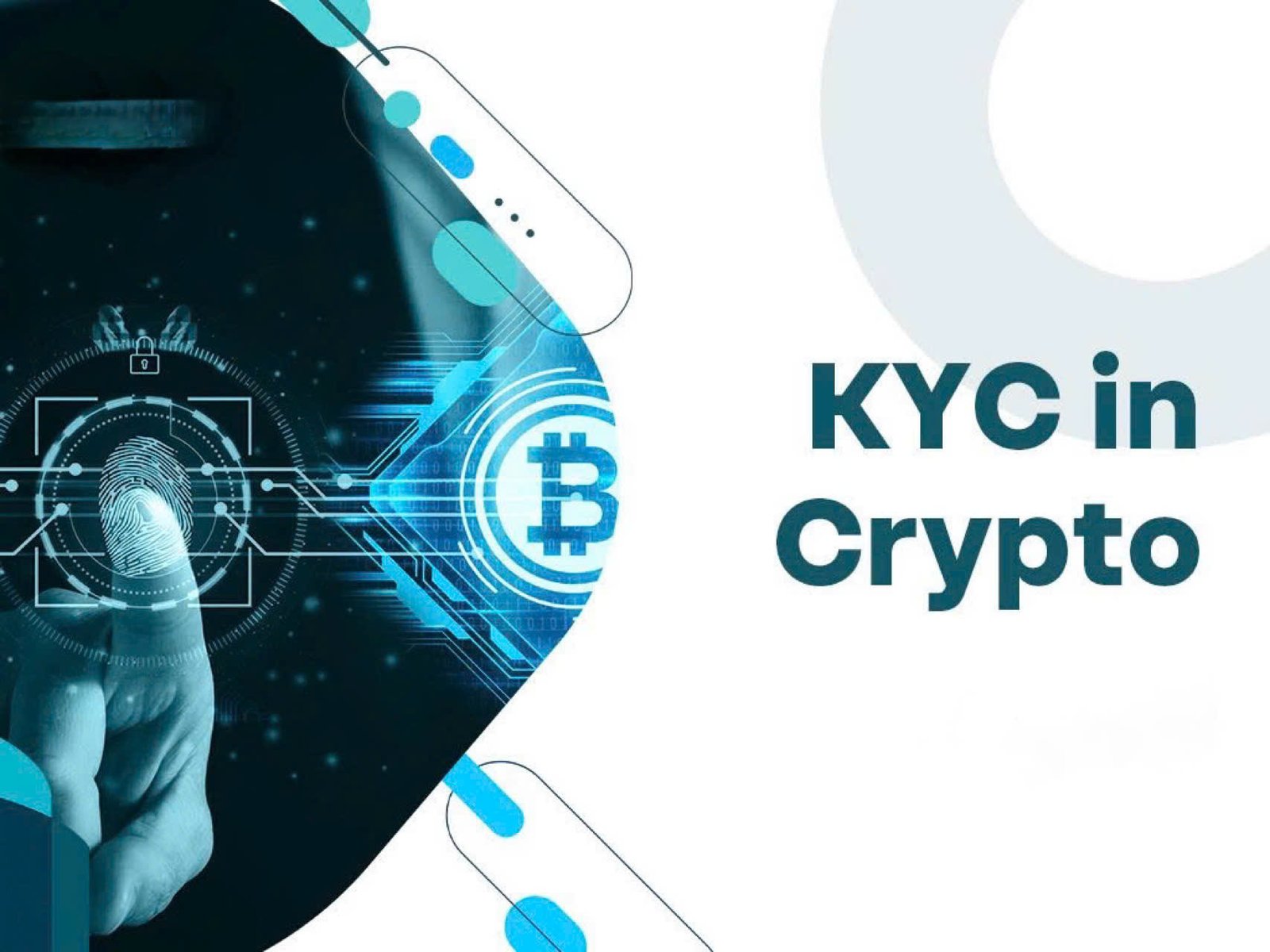KYC, or Know Your Customer, is a standard practice in both traditional finance and cryptocurrency. It involves verifying the identity of customers and ongoing monitoring to prevent fraudulent activities. Just as you’ve likely provided identification to open a bank account or brokerage, cryptocurrency exchanges now require KYC compliance to meet global regulations.
KYC in Crypto: A Comprehensive Guide

KYC, or Know Your Customer, is a fundamental compliance requirement in the cryptocurrency industry. It mandates that financial service providers, including crypto exchanges, verify the identities of their customers and monitor their activities for suspicious behavior. This helps prevent illegal activities like money laundering and terrorist financing.
The KYC process typically involves identity verification, such as providing identification documents, and ongoing monitoring of transactions. While this can sometimes be seen as a burden, it plays a crucial role in maintaining the integrity and security of the cryptocurrency ecosystem.
Most centralized crypto exchanges now require KYC verification before you can transact on their platforms. However, the specific requirements may vary depending on the exchange and the jurisdiction in which it operates.
The KYC Process for Crypto Exchanges: A Deeper Dive
While cryptocurrencies operate within a decentralized ecosystem, Know Your Customer (KYC) regulations are increasingly being implemented by crypto exchanges. Understanding the details of this process is crucial for anyone wanting to participate in buying, selling, or trading crypto assets.
From the User’s Perspective:
The KYC process typically involves a two-step verification:
-
Providing Basic Information: This generally includes supplying your full name, residential address, date of birth, and potentially your contact information (email and phone number). Some exchanges, particularly those catering to specific regions like the US, may also require a tax identification number (e.g., Social Security Number in the US).
-
Identity Verification: This is the core of KYC and usually involves submitting a government-issued photo ID, such as a driver’s license, passport, or national identification card. Depending on the platform and ID type, you may also need to provide a proof of address document, like a utility bill.
Behind the Scenes:
Once you submit your details, the exchange verifies their authenticity. This often involves leveraging third-party verification services that cross-reference your information against official databases. The verification process can take anywhere from a few minutes to several days, depending on the platform and its workload.
Here’s a more granular breakdown of the KYC process:
1. Collecting Personal Details:
- Full Name: Uniquely identifies the user.
- Residential Address: Verifies location and may be used for tax reporting.
- Date of Birth: Helps confirm eligibility for using the exchange (age restrictions may apply).
- Contact Information (Optional): Provides additional security for account verification and recovery.
2. Identity Verification:
-
Government-Issued Photo ID: Provides a reliable source of identification and verifies user’s legal name and photo.
- Driver’s License: May also serve as proof of address if it displays the user’s current residence.
- Passport: Universally recognized form of ID, but may require additional proof of address.
- National ID Card: Country-specific identification with photo and personal details.
-
Proof of Address: Provides further verification of user’s physical location.
- Utility Bill: Verifies residential address associated with the user’s name.
- Bank Statement: May be accepted as proof of address if it displays the user’s name and address.
-
Liveness Check (Optional): Employed by some platforms to combat fraudulent use of IDs. This involves capturing a live image of the user using a webcam or mobile camera and comparing it to the photo on the submitted ID. The user may need to move their head or perform specific actions to complete the verification.
3. Ongoing Monitoring:
Beyond initial verification, crypto exchanges are required to implement ongoing monitoring practices as part of their KYC compliance. This entails:
- Risk Profiling: The exchange analyzes your personal information and financial activity to assign a risk profile. Factors like source of funds and transaction frequency may be considered.
- Transaction Monitoring: The exchange monitors your account activity for any suspicious transactions that could indicate money laundering or illegal activities.
- Customer Information Updates: Users are responsible for keeping their personal information up-to-date with the exchange. This includes notifying them of any changes in address, phone number, or other relevant details.
Advantages of KYC Compliance in Crypto
While some may prefer anonymity in cryptocurrency transactions, KYC compliance offers significant benefits for the overall health of the crypto ecosystem. Let’s explore these advantages:
1. Enhanced Security and Trust:
- Reduced Fraud and Illicit Activity: KYC verification makes it more difficult for criminals to use crypto exchanges for money laundering or other illegal activities.
- Increased User Confidence: KYC compliance can provide users with a sense of security knowing that other users on the platform have also been verified. This helps build trust and attract new users to the platform.
2. Regulatory Compliance:
- Avoiding Legal Sanctions: Crypto exchanges that fail to comply with KYC regulations risk facing fines or even closure by regulatory authorities.
- Maintaining User Funds: Non-compliant exchanges can have their bank accounts frozen or access to financial services restricted, hindering users’ ability to deposit or withdraw funds.
3. Improved Market Stability:
- Reduced Market Manipulation: An anonymous trading environment can lead to manipulative practices like wash trading or layering. KYC helps identify individuals engaging in such activities and protect genuine traders from market manipulation.
- Increased Market Transparency: KYC compliance allows exchanges to track and report suspicious activity, fostering a more transparent and reliable trading environment
Navigating the Trade-offs: KYC in Crypto
While KYC has become a standard practice in the cryptocurrency industry, it’s not without its challenges and drawbacks. Some critics argue that KYC compromises user privacy, while others point to the increased costs and time commitments involved.
Privacy Concerns:
One of the primary concerns surrounding KYC is the collection and storage of personal information. There’s a risk that this data could be compromised in a data breach, leading to identity theft or other malicious activities. While exchanges typically implement security measures to protect user data, the threat of breaches remains a persistent concern.
Time-Consuming Processes:
The KYC process can be time-consuming, especially for new users. While some exchanges may streamline the process, the ongoing monitoring and reporting requirements associated with KYC can add to the overall overhead.
Increased Costs:
KYC compliance can also increase operational costs for crypto exchanges. These costs are often passed on to users in the form of higher fees or wider spreads.
Alternatives to KYC:
While KYC is prevalent in the crypto industry, there are some alternatives available. Decentralized exchanges (DEXs) like Uniswap and Curve Finance generally do not require KYC, but they may have limitations in terms of accessibility and liquidity.
There are also a handful of centralized exchanges that operate without KYC requirements. However, these exchanges may have restrictions on transaction limits or may not be available in all jurisdictions.
The Future of KYC:
The future of KYC in crypto is likely to involve a combination of technological advancements and regulatory developments. Innovations in blockchain and artificial intelligence could streamline the KYC process, making it more efficient and less intrusive. Additionally, regulatory bodies may continue to refine KYC requirements to strike a balance between security and user privacy.
As the cryptocurrency industry matures, it’s essential for users to carefully consider the trade-offs associated with KYC and choose the exchange that best aligns with their priorities.
FAQs: KYC in Crypto
What is KYC in crypto? KYC, or Know Your Customer, is a compliance requirement in the crypto industry. It involves verifying user identities, assessing risks, and continuously monitoring activity to prevent illegal activities.
Do all crypto exchanges require KYC? While most exchanges require KYC, some, like MEXC, allow trading without full KYC verification. However, you might still need to provide KYC information when purchasing crypto with fiat currency.
Do you need KYC to buy crypto? Typically, yes. Most crypto trading platforms require KYC for trading. Peer-to-peer exchanges and crypto ATMs are alternatives for those seeking to avoid KYC.
Why is KYC important in crypto exchanges? KYC helps prevent illegal activities like money laundering and terrorist financing. This makes exchanges safer, attracting more users and improving market liquidity.
How do you avoid KYC in crypto? Peer-to-peer exchanges and crypto ATMs are options to avoid KYC.
However, these may have limitations or higher fees.
Conclusion
KYC, while primarily associated with identity verification, plays a more extensive role in the crypto ecosystem. It involves ongoing monitoring and reporting to prevent illegal activities like money laundering and terrorist financing.
While KYC can add costs and seem counterintuitive to the decentralized nature of crypto, it’s essential for maintaining the integrity of the market. Technological advancements, such as blockchain-based KYC and AI, offer potential solutions to streamline the process and enhance user privacy.




